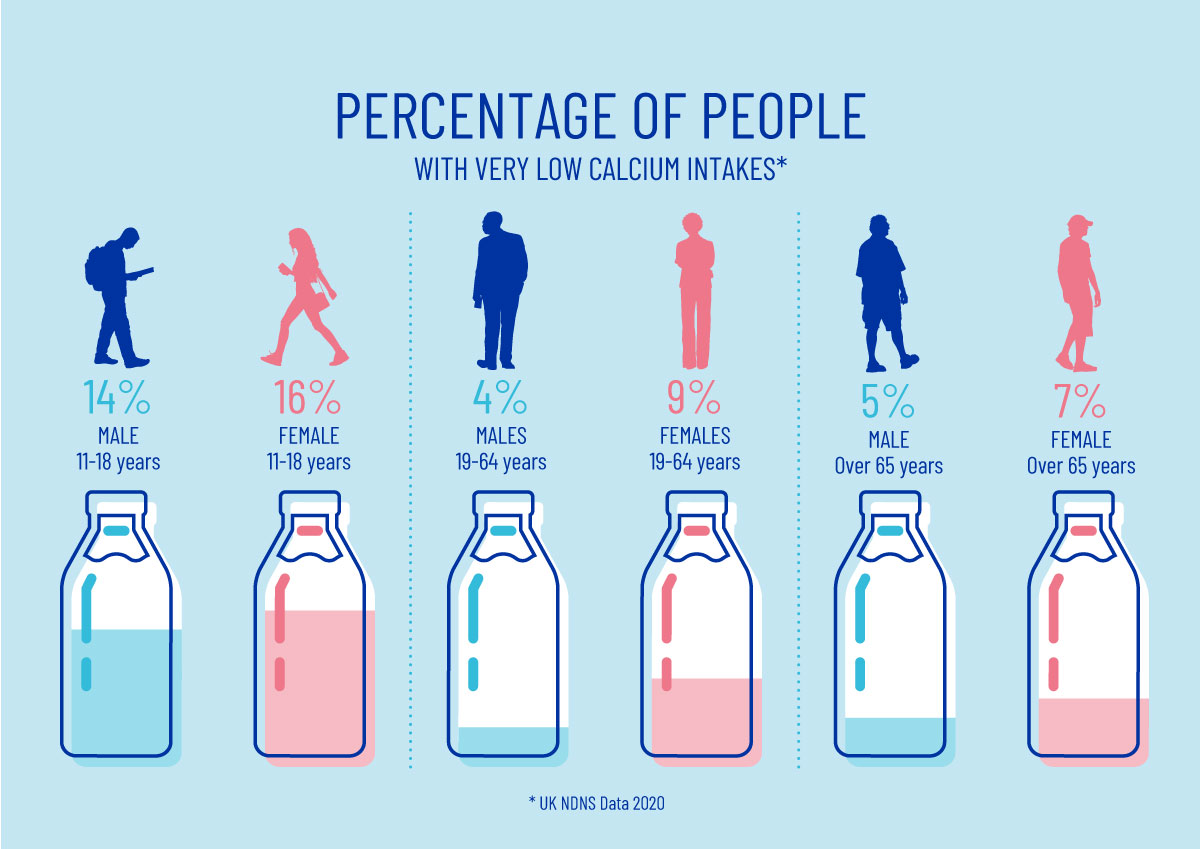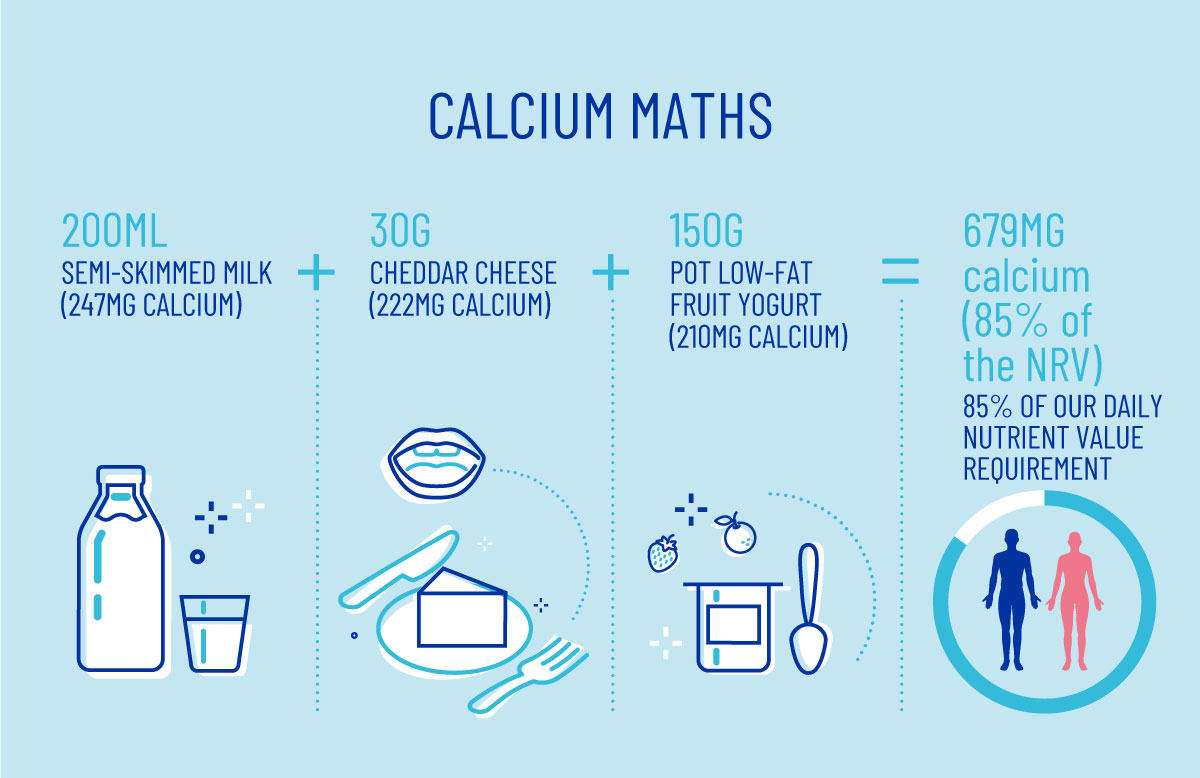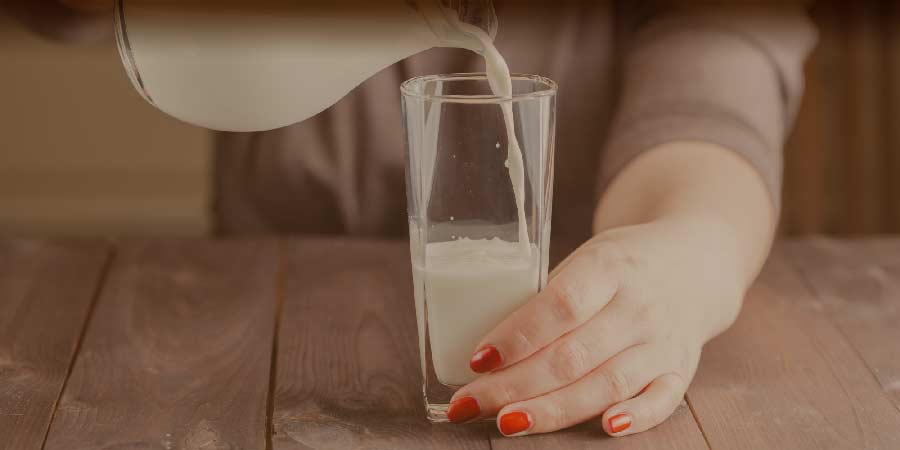The impact of regularly not getting enough calcium in our diet tends not to show up until later in life. However, it can ultimately affect the health of our bones and quality of life.
Low calcium intakes throughout life are one of many factors that can contribute to osteoporosis, where bones are prone to fracturing easily. According to the NHS, more than 3 million people in the UK suffer with osteoporosis and every year around half a million people have to go to hospital because of fractures that have happened because of osteoporosis.
“Calcium is important. It gives your bones the strength and hardness they need to cope with your everyday activities. Your body contains about one kilogram of calcium – 99% of this is in your bones. Most people can get enough calcium through healthy eating alone.”
You can find out more about osteoporosis at the Royal Osteoporosis Society
How common are low intakes?
Only around one in 100 toddlers and primary school age children have very low intakes of calcium. This doesn’t automatically mean they are deficient in calcium, but it does mean they are at a greater risk of deficiency. The chart below shows the percentage of people with very low calcium intakes.
Getting enough calcium
As low calcium intakes tend to silently affect our bones for many years, it’s important we continually keep a close watch on our diet to make sure we get enough throughout life. This is particularly important during childhood and the teenage years – the more calcium that’s deposited in the bones during this stage in life, the stronger bones will be in later life.
As a general guideline, a typical serving of dairy – a 200ml glass of milk, 30g of hard cheese or a 150g pot of yogurt – provides around a third of the calcium adults need in a day. This means having three servings of dairy a day will help most of us get close to, or reach, our daily calcium needs.
Teenagers, especially boys, have higher calcium needs to support rapidly growing bones, so four daily servings of dairy will bring them closer to meeting their needs. Those who can’t have dairy should ensure they have enough calcium in their diet from other sources, and should consult their doctor or dietitian in order to ensure they have a healthy and well balanced diet.
As a guideline, calcium recommendations are set at 800mg a day. To find out more specific needs for different ages, see Calcium needs throughout life.
Find out more about
Last reviewed: 03/2021
Next review due: 03/2023













